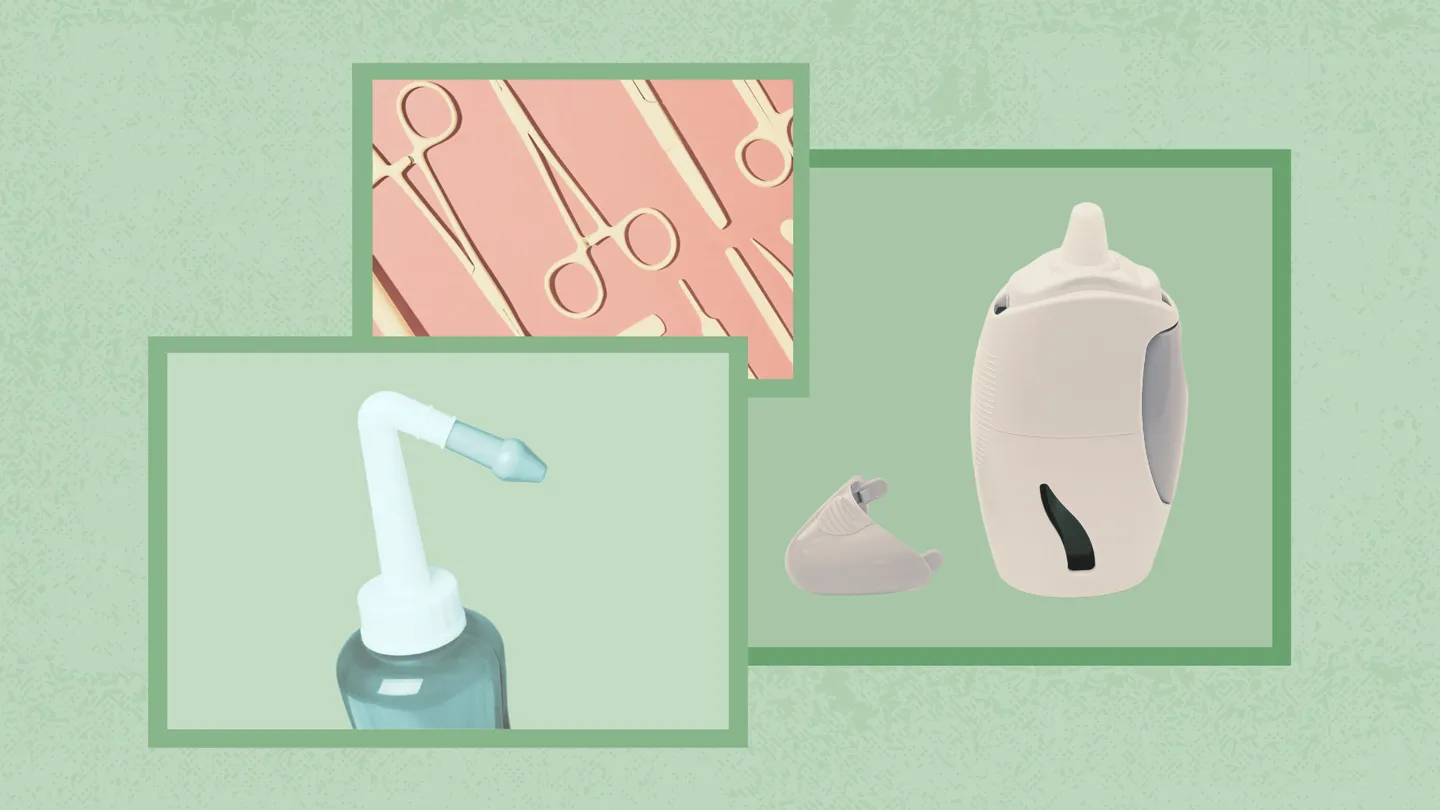Medication
Several medication options are available to treat nasal polyps.
Nasal Corticosteroids
- budesonide (Rhinocort)
- beclomethasone (Beconase AQ, Qnasl)
- ciclesonide (Omnaris, Zetonna)
- fluticasone (Flonase Allergy Relief, Xhance)
- mometasone (Nasonex 24hr Allergy)
Nasal sprays often require daily administration to be effective, which can be a drawback, Schneider says. How long and how often you take nasal corticosteroids, as well as the dosage, will depend on the severity of your symptoms and whether you take other medications, he says.
Oral Corticosteroids
If a nasal corticosteroid doesn’t work, your doctor may recommend an oral corticosteroid, such as prednisone. This treatment may be taken alone or in combination with a nasal spray.
“Oral steroids are typically very effective in shrinking polyps and improving symptoms,” Schneider says. “However, the effects can be short-lived, and steroids have serious side effects, particularly when used long-term.”
The short-term side effects of oral corticosteroids may include:
- Fluid retention
- High blood pressure
- Mood swings
- Weight gain
- Upset stomach
Meanwhile, long-term use may cause the following side effects:
- Glaucoma
- Cataracts
- Rounding of the face (also known as “moon face”)
- High blood sugar, which can lead to or worsen diabetes
- Increased risk of infections
- Osteoporosis and fractures
- Thin skin, bruising, and slower wound healing
- Severe fatigue, loss of appetite, nausea, and muscle weakness
Be sure to discuss these side effects with your doctor when deciding whether oral corticosteroids are the right option for you.
Biologic Medications
The newest treatment option for polyps is biologic medication. Biologics are antibodies that target inflammatory signal pathways and chemicals that contribute to the development of nasal polyps, and they are usually given via injection, Schneider says.
Biologics are used to treat moderate to severe asthma, but they can also be used to treat chronic rhinosinusitis with nasal polyps. They also reduce the need for oral steroids, he says.
There are a few different biologics for nasal polyps, including:
- dupilumab (Dupixent), which is by far the most widely used, Dr. Griffiths says
- mepolizumab (Nucala)
- omalizumab (Xolair)
“These biologics have been a game changer in the last five years in treating patients whose polyps have had a significant impact on their health,” Griffiths says.
Read the full article here




